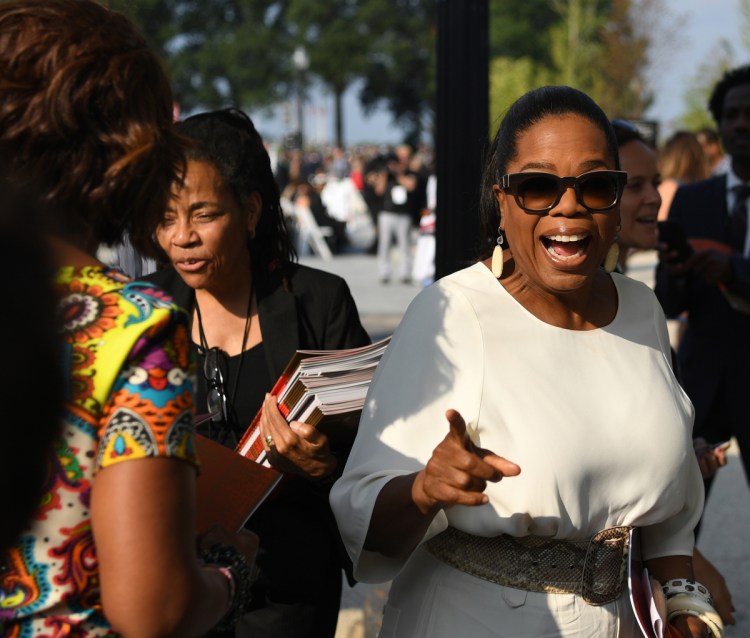WASHINGTON — She’s a powerful media executive and Hollywood jet-setter who transformed daytime television, launched literary careers and convened difficult conversations about race and gender.
But Oprah Winfrey also is an African-American activist whose contributions to American culture rank alongside those of Sojourner Truth and Ida B. Wells, according to a new exhibition at the National Museum of African American History and Culture.
Opening Friday and running through June 2019, “Watching Oprah: The Oprah Winfrey Show and American Culture” features video clips, interview segments, movie costumes and personal photographs and journals to explore what has influenced Winfrey and how her work has shaped America.
“What’s interesting is the same way America thought about Walter Cronkite – you could trust Walter Cronkite and his opinion – they trust Oprah,” said museum director Lonnie G. Bunch III. “An African-American woman becomes the person America turns to.”
Curators Rhea L. Combs and Kathleen Kendrick worked with Winfrey and her staff on arranging loans for the exhibition and on fact-checking and background information.
“We’re providing a context for understanding not only who she is, but how she became a global figure, and how she is connected to broader stories and themes,” Kendrick said.
The first section of the show, which is in the Special Exhibitions gallery, explores Winfrey’s childhood and early career and how the cultural shifts of the 1950s and ’60s informed her worldview.
“Civil rights, the women’s movement, the media and television landscape, she’s at this distinct intersection of all of these dynamic moments,” Combs said. “She becomes someone at the forefront of dealing with ideas, of discussing hot-button topics like racism and sexual orientation.”
The middle section looks at the 25-year run of the “Oprah Winfrey Show,” the highest-rated talk show in history. Using artifacts from Winfrey’s Harpo Studios in Chicago, where the show was filmed, this section focuses on its evolution, its variety of subject matter and guests, and its reach into social issues such as racism and equality.
“She used television as a social medium, convening conversations and creating these interactive experiences with people,” Kendrick said. “She’s offering lessons for living, social guidance in a way.”
The third section looks at Winfrey’s role as cultural influencer and tastemaker in the movies she has made, the books she promoted in her television book club and her philanthropic work.
– From news service reports
Send questions/comments to the editors.



Comments are no longer available on this story